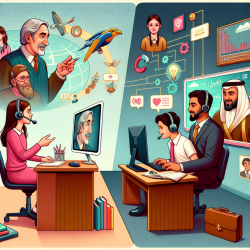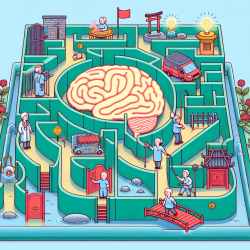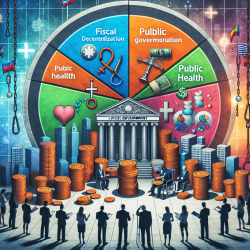Embracing Privacy-Aware Lifelogging Technologies for Better Child Outcomes
In the evolving landscape of digital health technologies, lifelogging applications offer promising opportunities to enhance care and support for various populations, including children. However, as practitioners, it's crucial to understand and address the privacy implications associated with these technologies to ensure they are used ethically and effectively. The research article "Interdisciplinary perspectives on privacy awareness in lifelogging technology development" provides valuable insights into how privacy can be integrated into the design and implementation of lifelogging technologies, emphasizing the importance of a multidisciplinary approach.
Understanding the Research
The study conducted under the PAAL project ('Privacy-Aware and Acceptable Lifelogging Services for Older and Frail People') highlights the necessity of incorporating privacy by design into lifelogging technologies. This approach ensures that privacy concerns are addressed from the outset, integrating legal, technical, and social perspectives. The research underscores the significance of user-centered design, which involves understanding the perceptions and attitudes of users towards privacy, especially in sensitive environments like schools and healthcare settings.
Implementing Privacy by Design
For practitioners working with children, implementing privacy by design involves several key steps:
- Conducting Privacy Impact Assessments: Evaluate the potential privacy risks associated with lifelogging technologies and develop strategies to mitigate these risks.
- User-Centric Design: Engage with children, parents, and educators to understand their privacy concerns and incorporate their feedback into the design of the technology.
- Transparency and Control: Ensure that users have clear information about what data is being collected, how it is used, and who has access to it. Provide mechanisms for users to control their data.
- Interdisciplinary Collaboration: Work with experts from various fields, including law, technology, and education, to develop comprehensive privacy solutions.
Encouraging Further Research
While the PAAL project provides a robust framework for privacy-aware lifelogging technologies, there is still much to explore. Practitioners are encouraged to engage in further research to adapt these principles to the specific needs of children and educational settings. This includes exploring new technologies, understanding evolving privacy regulations, and continuously assessing the impact of these technologies on child development and learning outcomes.
Conclusion
By embracing privacy-aware lifelogging technologies, practitioners can enhance the support and care provided to children while safeguarding their privacy. This approach not only aligns with ethical standards but also fosters trust and acceptance among users. As we continue to integrate technology into educational and therapeutic settings, let us prioritize privacy and strive for solutions that respect and protect the rights of our youngest users.
To read the original research paper, please follow this link: Interdisciplinary perspectives on privacy awareness in lifelogging technology development.










